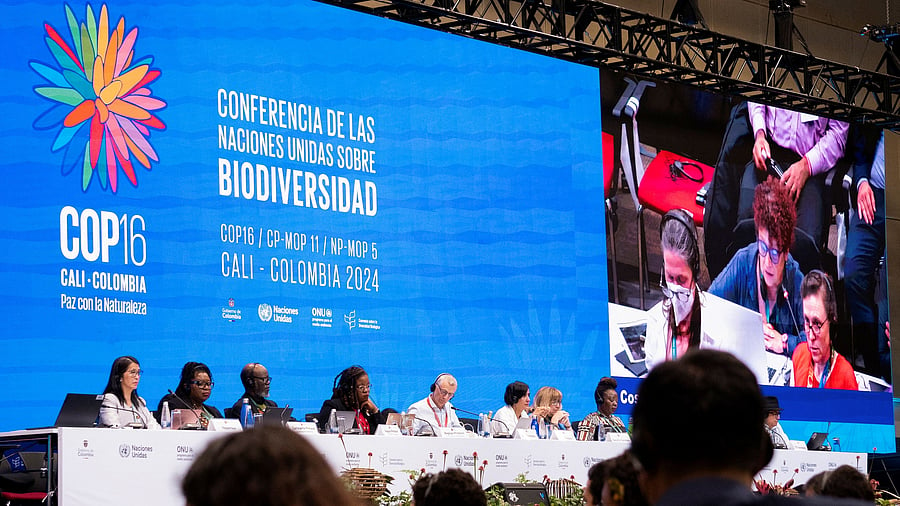
United Nations COP16 nature summit in Cali
Credit: Reuters Photo
COP16, the fortnight-long global summit on biodiversity convened under the auspices of the UN, at Cali, Colombia, ended on Saturday without any substantial agreement, though it showed some gains on less contentious issues. The summit was expected to follow up on a deal made by countries in 2021 and in 2022 – at meetings in Kunming, China, and Montreal, Canada – on a set of goals to protect nature and the diversity of life in it. The meeting ended without a decision on the two most important issues under negotiation. These were how to raise financial resources to protect nature and how a global framework could be found and implemented for monitoring and evaluating progress on efforts to preserve biodiversity. On the agenda were also proposals to set targets such as protecting 30% of the earth’s surface for nature. The summit ended in confusion as many countries left without attending the extended session on the last day. There was no quorum for the final session and the meeting was officially declared as suspended.
Some agreements were reached. These included an agreement on a global levy on products made using genetic data from nature, which would help to create one of the world’s largest biodiversity conservation funds. Another was the decision to involve indigenous communities in the official decision-making of the UN biodiversity process. These agreements helped to describe the outcome as mixed, but what was achieved was much less than what was not. It was observed that developed countries, including the EU, France, the UK, and Japan, did not take much interest and show leadership in taking the negotiations forward. China and even the UN officials were found wanting. The proposal to set up a dedicated fund to pay for nature restoration in poorer countries, which should have been the focus of the summit, was opposed by the developed countries, and that led to the unseemly ending of the gathering.
Many countries were unhappy that important issues such as that relating to financial mobilisation were pushed towards the end of the summit and were left unresolved. In 2022, countries had committed to raising $200 billion a year by 2030, including $20 billion to be given by richer countries to developing countries by 2025. This has not happened and there was no promise that it would happen. The Montreal summit had agreed on 23 targets and four goals to stop the destruction of nature and preserve biodiversity. No decision was made on how these could be monitored. The impression among the developing countries was that the pace of discussions lacked a sense of urgency and that was deliberate. Overall, the summit, which had raised many expectations, turned out to be a missed opportunity.
